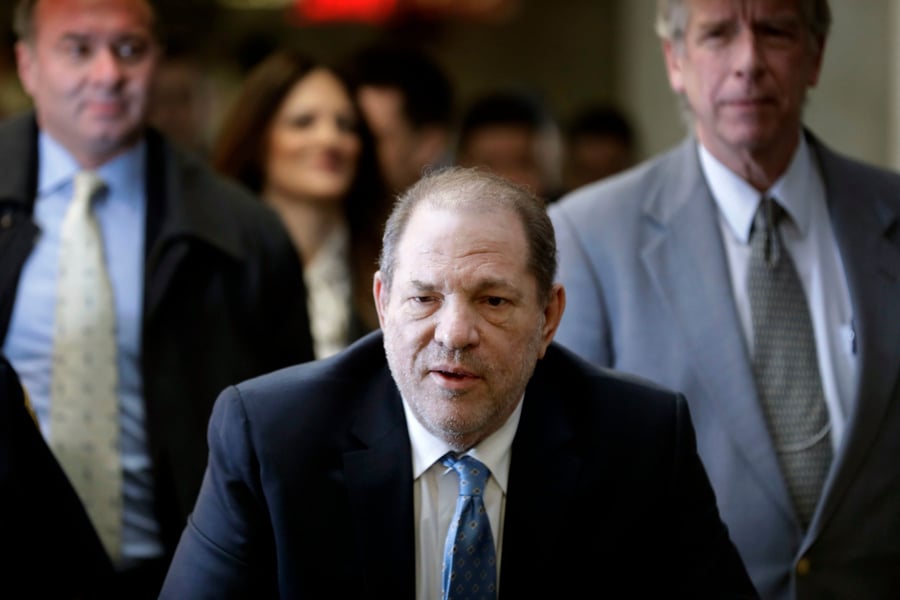Harvey Weinstein was sentenced to 23 years in a New York state prison Wednesday, weeks after the disgraced producer was found guilty of two charges in his sexual assault trial.
Weinstein faced between five to 29 years following his conviction on charges of felony sex crime and third-degree rape; the former charge carried the five-to-25 year sentence, while the latter charge was punishable by a maximum four-year sentence.
The charges in the New York trial were related to two victims, Mimi Haleyi, a former production assistant, and Jessica Mann, an aspiring actress at the time she accused Weinstein of sexually assaulting her in 2013. Haleyi’s accused Weinstein of assaulting her at his apartment in 2006, while Mann testified that Weinstein raped her at a hotel in 2013.
In February, Weinstein was found guilty of two of the five charges against him, with the producer acquitted on the most severe charge against him, predatory sexual assault. Immediately after the trial, Weinstein spent 10 days in New York’s Belleville Hospital — where he underwent a procedure to clear a heart blockage — before he was transferred to Rikers Island to await sentencing.
Weinstein’s legal team asked the judge for the minimum five-year sentence, citing the producer’s age (at 67 years old, “the grave reality is that Mr. Weinstein may not even outlive that term”), his philanthropic efforts, his contributions to film and his lack of a prior criminal record.
“His wife divorced him, he was fired from the Weinstein Company, and in short, he lost everything,” Weinstein’s lawyers wrote, adding that in addition to the prison sentence, Weinstein will face “collateral consequences.” “Mr. Weinstein cannot walk outside without being heckled, he has lost his means to earn a living, simply put, his fall from grace has been historic, perhaps unmatched in the age of social media.”
However, prosecutors sought the maximum sentence and argued that while Weinstein only faced charges related to two victims, he had a “lifetime of abuse towards others, sexual and otherwise” and showed a “lack of remorse” for his victims.
Love Music?
Get your daily dose of everything happening in Australian/New Zealand music and globally.
“[Weinstein] has consistently advanced his own sordid desires and fixations over the well-being of others,” prosecutors said. “He has destroyed people’s lives and livelihoods or threatened to do so on whim.”
According to the NY Daily News’ Molly Crane-Newman, both Haleyi and Mann addressed the court prior to sentencing. “[Weinstein] not only stripped me of my dignity as a human being and as a woman,” Haleyi said, “it diminished my confidence and faith in myself.”
Mann added (via Variety), “I don’t know how to explain the horrors of being raped by someone who has power. The impact on the psyche is profound. Rape is not just one moment… it is forever.”
During a 10-minute statement to the court prior to his sentencing, Weinstein admitted he had “deep remorse” for his behavior but also bemoaned the #MeToo era during a sprawling screed that reportedly touched on communism and Hurricane Sandy.
“I am totally confused. I think men are confused about all of this…this feeling of thousands of men and women who are losing due process, I’m worried about this country,” Weinstein said. “This is not the right atmosphere in the United States of America.”
Minutes later, Judge James Baker handed down the 23-year sentence, which included a 20-year sentence (plus five years of supervised release) for the first-degree criminal sex act and a three-year sentence for the third-degree rape conviction. Baker also ordered that the sentences be served consecutively – one after the other – as opposed to concurrently.



































